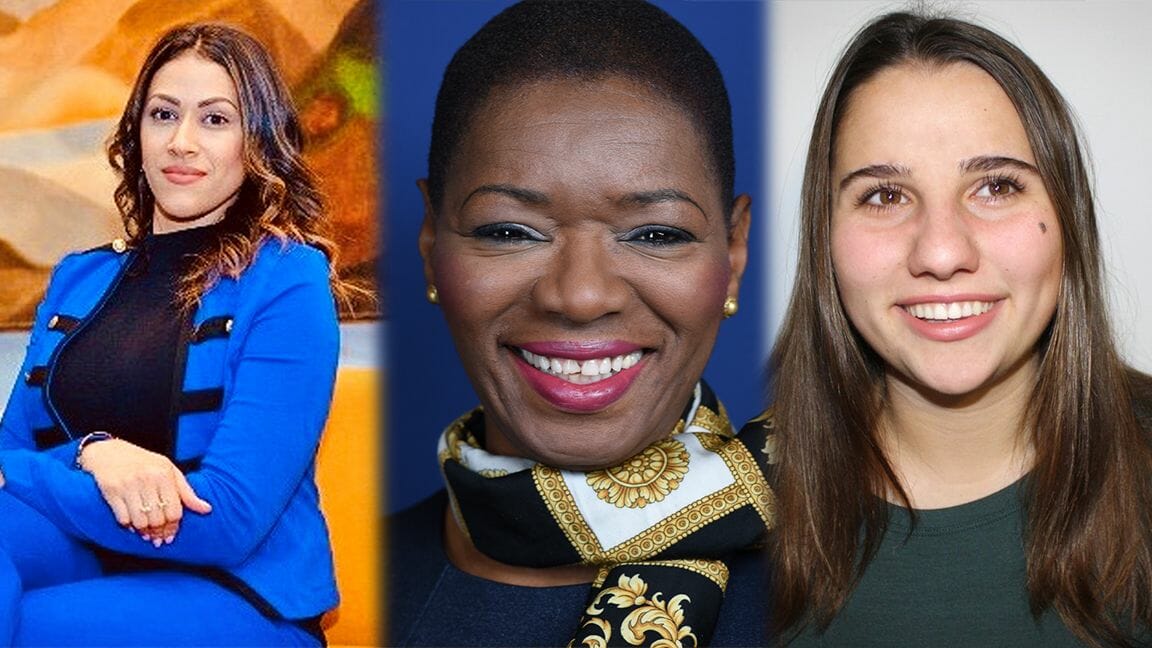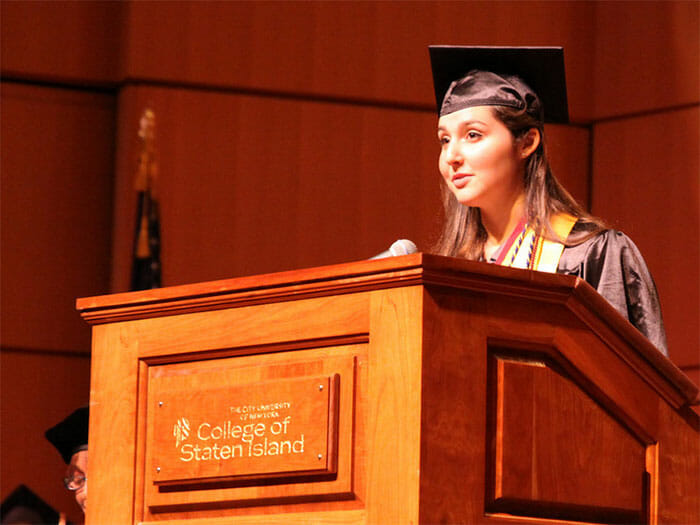November 19 is Women’s Entrepreneurship Day, the day on which we recognize and celebrate the work of women entrepreneurs. This day presents us with the opportunity to highlight alumnae of the College of Staten Island (CSI) who are female founders and who can inspire other young entrepreneurs by sharing both the joys and challenges of their entrepreneurial journey. We asked them what challenges they faced, how their education at CSI helped prepare them for their entrepreneurial career, and what advice they have for aspiring entrepreneurs.
The Lucille and Jay Chazanoff School of Business is proud of the accomplishments of the following alumnae:
Orumé Hays, a 2005 CSI graduate who obtained a BS in Accounting and Finance. Hays graduated Magna Cum Laude and is currently an adjunct professor at CSI. She completed her master’s degree at Northeastern University in 2019. Over the years, Hays has served as an Executive Committee Member at AICPA as well as the Director at Large and a past chair of the Small Firms Practice Management Committee at NYSSCPA. She is a leader in her industry supporting small businesses in their efforts and paving the way for Black-owned, female-led initiatives.
Dena Mekawi completed her studies in 2012 at CSI where she earned a BS in Business with a concentration in Management and Marketing. She completed her Master’s degree in Publishing at Pace University in 2015. Mekawi has been chosen as a representative to the United Nations NGO, DGC where she has been an inspiration to social activists, entrepreneurs, and to underrepresented communities. She consults influential figures in the entertainment space and creates impact through power of influence.
Natalia Sandor graduated Magna Cum Laude from CSI in 2020. Sandor received her BS in Business with a concentration in Management, and was a Macaulay Honors Scholar. Additionally, she was the recipient of a four-year CSI Foundation Scholarship. In 2019, Sandor was awarded a grant through the College to assist her business and was part of a winning team in the 2020 cohort of CUNY StartUps. She was a Food and Beverage judge at the NY Business Plan Competition in 2020 and frequently engages with student programs/experiential learning to share the entrepreneurial mindset with younger students.
What challenges did you face as woman entrepreneur?
When asked about what challenges she faced as female entrepreneur, Style & Resilience’s founder, Dena Mekawi pointed to the importance of being your own motivator, leader, worker, and manager. She expressed the importance of looking out for yourself and managing your emotions. This is also why Mekawi said “she never did it alone.” “In the beginning, people will doubt you,” said Mekawi. “People who once doubted you are inevitably going to support you when they watch you overcome barriers they thought you would not be able to face,” she explains. It is common to hear “No.” It is common to be told that things are hard. As a female entrepreneur you must keep going to find your “Yes!” and remain composed until you figure out how to solve inevitable challenges.
This kind of resilience is also found in Orumé Hays, a CPA who runs her own firm and who echoed the idea of having to deal with pressure . She revealed that her greatest challenges were in two areas: the heavy workload and the overwhelming feelings of doubt that come from running her own business. On the other hand, Hays expressed that these feelings have not been a match for her passion. This is why she feels that as an entrepreneur, “you must find your why.”She believes that passion will help you find the drive for the business you are running and the motivation to achieve success.
Natalia Sandor, a 22-year old, was driven to found her ice cream sandwich company, Sand Bars Handcrafted , because of her “lifelong love affair with mint chocolate chip ice cream.” She described one of the many challenges she faced as a young female entrepreneur as balancing her personal and professional lives and reminding herself that it is OK not to check everything off her to-do list every day. Sandor also recently joined the CSI Blackstone LaunchPad team as Coordinator.
How did CSI help prepare you for your unpredictable journey?
Mekawi explains how her idea to create heels that turn into shoes was one of the sparks of her entrepreneurial journey. In a marketing class at CSI, she was charged with developing an idea to bring to market. Although, the concept of her heel-to-shoes never went anywhere, it was one of the first times she was pushed to engage with her entrepreneurial spirit.
For Hays, her spark was found through a different kind of catalyst. “I was inspired by my professors to become a CPA,” said Hays. Her accounting classrooms were places of personal discovery and professional growth, leading to an internship as well as job experiences that pushed her to start her own firm. After CSI, her experience at other CPA firms motivated her to pursue her own venture. “I wanted to serve the client better,” says Hays. To accomplish that goal, Hays felt she needed to be more hands on and have more control over customer service, which meant the creation of her own firm. She concludes: “When you run your own thing, you can decide how close you are to the person you serve.”
Sandor said she learned about two important personal developments at CSI: resilience and resourcefulness. “There is something about being a CUNY student that makes you scrappy, and pushes you to find your champions,” she says. “I looked high and low, near and far, to find the little leads that would inject energy, support, and life into my idea. Now, I have the skills to always keep moving forward and to find the people who will help me do that.”
What advice do you have for aspiring entrepreneurs?
Surrounding yourself with good people is Mekawi’s motto: “Find people who see more in you than what you see in yourself.” She emphasizes the need to be around good people as a necessary but not a sufficient condition to entrepreneurial success. “Entrepreneurship needs to come organically from within you,” she states, as “true entrepreneurship lies in those who aim to solve a problem or who work to live out a calling.” But all else being equal, according to Mekawi -even for those with that calling – starting is usually the hardest part. And even if your first startup fails, you always learn. Entrepreneurial thinking is an immeasurable tool that enhances both personal and professional development.
Fear of failure stops many women from pursuing the things that keep them going. To this Hays says, “do not be discouraged, do the best you can. After a while, people will seek you out.”Feelings of nervousness often limit women from pursuing their dreams and to that we must find a way to uplift each other. To combat nerves, Hays recommends pep-talks and practice. The more you confront your fears, the less scary they will be.
For any woman with an idea or a desire to pursue a venture, Sandor recommends taking a leap forward instead of overthinking. The worst thing that can happen is you can fail and if you do not try, you won’t have the chance to find out.
Entrepreneurship at CSI
CSI is going entrepreneurial! Our campus was recently awarded a three-year grant from the Blackstone Charitable Foundation to make entrepreneurial skills more accessible to our diverse student body. Register on our entrepreneurship platform to stay up to date of all we do including competitions where you can win awards. We recently announced the winners of our Ideas Competition and awarded $6,500 in cash prizes. Do not wait… register here: https://csi.startuptree.co/
Natalia Sandor with Heidi Bertels and Mark Stroud




![[video] The Underground Railroad’s Trail to Freedom](https://csitoday.com/wp-content/uploads/2012/05/Debbie_Ann_Paige_5_31_2012.jpg)













